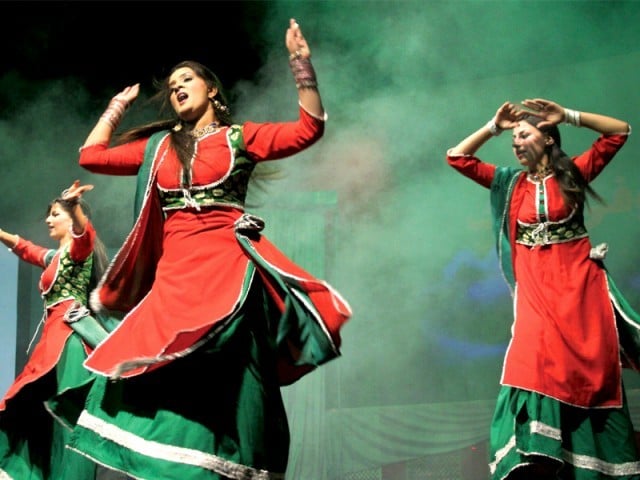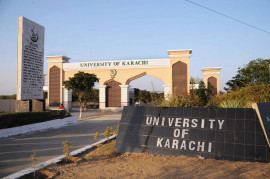
This view was voiced by Islamia University of Bahawalpur Siraiki department chairperson Dr Jawed Hassan Chandio at a seminar on 'Sufism, Peace and Democracy'. It was organised by the Women Media Centre in collaboration with the Rumi Love Foundation at the Pearl Continental hotel on Tuesday.
Referring to Sufi kalams, Chandio said that there are numerous times when Indian Sufis have quoted the woman as the 'ashiq' [lover] and the man as the 'mashooq' [beloved]. "Sufis of the subcontinent always talked in the language of women, in which she was always empowered, as compared to the works of Arab Sufis, in which the opposite is true," he said.
According to Chandio, Sufism had diagnosed not only the ills of society but also suggested their solutions. He believed that the medium of instruction at schools is the reason behind the destruction of the Sufi values.
Elaborating on the link between Sufism and democracy, Chandio said that all efforts to bring peace in a society will go in vain unless intellect is not made to go through the metaphysical process called Sufism. Citing a work of Sufi saint Khwaja Farid Ganjshakar in Siraiki, he said that one of the common traits among the Sufis was the use of the local language of the people. "Their kalam was always in the local dialect," he said. "Even when the society of the subcontinent had many religions and cultures, they wrote for everyone in that language."
According to him, no matter how many hospitals, schools and roads we construct in the name of democracy, peace in a society cannot be attained until and unless the individual is at peace.
Institute of Business Administration social sciences department head Dr Huma Baqai brought up the question that what was the reason behind the West's sudden interest in the revival of the 800-year-old Sufi teachings and traditions. She believed that it was the idea of resilience promoted by the Sufi ideology that is perhaps attracting the West at a time when fear of Islam is on the rise.
Journalist Nazir Leghari also shared his views on the imposition of extremist narrative in the Muslim world and how to combat it. Talking about the birth of Sufis at a time when barbarism was the practice of the ruling elite, he said that it was Sufi saints, such as Bahauddin Zakaria and Khwaja Moinuddin Chishti Ajmeri, who raised their voices for their people.
"We will have to take into account the teachings of these people to fight the growing intolerance and barbarism in the society today," he said.
Published in The Express Tribune, April 15th, 2015.
1727426214-0/Tribune-Pic-(7)1727426214-0-405x300.webp)
1725189415-0/Untitled-design-(5)1725189415-0-165x106.webp)
1727423943-0/Tribune-Pic-(6)1727423943-0-165x106.webp)



1727415147-0/Untitled-design-(43)1727415147-0-270x192.webp)










COMMENTS
Comments are moderated and generally will be posted if they are on-topic and not abusive.
For more information, please see our Comments FAQ